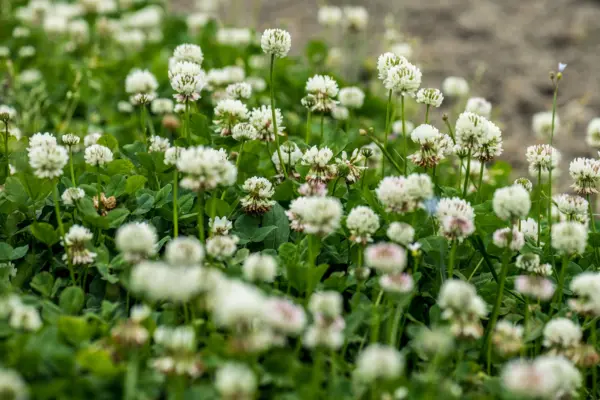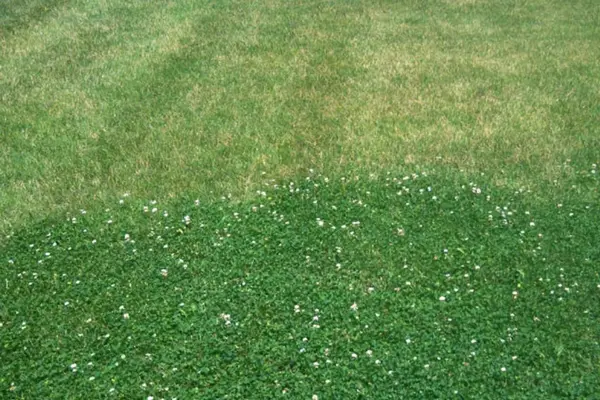Clover lawns are increasingly popular due to their eco-friendly nature, low maintenance requirements, and resilience in various climates. However, as the cold season approaches, understanding how to properly care for a clover lawn during winter becomes essential. By following Expert Tips for Lawn Maintenance in Winter, you can ensure your lawn thrives through the frost and snow, emerging healthy and vibrant in the spring.
This article discuss everything you need to know about clover lawn winter care, ensuring your lawn thrives through the frost and snow, and emerges healthy in the spring.
Understanding Clover Types and Their Winter Hardiness
Winter care begins with knowing the type of clover you have in your lawn. The two main varieties commonly used are white clover (Dutch clover) and microclover. Each type has its own unique characteristics and winter behavior, which influence how they should be managed during the colder months.
White Clover (Dutch Clover)

White clover, also known as Dutch clover, has been a staple in lawns since the 1950s. It’s a low-growing perennial that spreads by creeping stems, forming a dense mat that crowds out weeds. White clover is particularly valued for its ability to fix nitrogen, reducing the need for synthetic fertilizers.
Winter Behavior and Considerations
White clover is a cool-season perennial, thriving in moderate temperatures and entering dormancy as winter intensifies. In regions with mild winters, white clover can remain green and active. However, in areas with harsher winters, it may turn brown or die back, only to revive in spring.
Key considerations for white clover winter care:
Allowing the clover to flower before winter: This is crucial for reseeding, as it enables the lawn to naturally replenish itself. Cutting the clover too frequently can reduce its ability to flower, leading to a sparse lawn in the future.
Soil protection: During winter, the clover’s root system helps protect the soil from erosion, even when the top growth is dormant. Ensuring your clover lawn has a thick, healthy growth before winter can help protect your soil from winter damage.
Microclover

Microclover is a smaller, more refined cousin of white clover, engineered specifically for lawn use. It blends seamlessly with grass, creating a more traditional lawn appearance while retaining the benefits of clover. Microclover is especially popular in areas with high foot traffic due to its compact growth habit and durability.
Winter Behavior and Considerations
Microclover is similarly hardy to white clover but offers enhanced resilience during winter. Its smaller leaves and denser growth make it less susceptible to winter damage, allowing it to maintain a green hue longer into the cold season.
Key considerations for microclover winter care:
- Traffic tolerance: Microclover’s robust root system allows it to withstand foot traffic even in winter, making it ideal for lawns that experience year-round use.
- Mixing with grass: When combined with grass, microclover enhances the lawn’s overall winter resilience, as the grass and clover support each other during temperature fluctuations.
White Clover vs. Microclover Winter Hardiness
| Feature | White Clover (Dutch Clover) | Microclover |
|---|---|---|
| Winter Hardiness | Moderate | High |
| Dormancy in Winter | Yes | Yes |
| Survival in Snow | Good | Excellent |
| Reseeding Requirement | High | Moderate |
| Resilience in Traffic Areas | Low | High |
Soil Preparation for Winter
Proper soil preparation is essential to help your clover lawn endure the winter months. Both white clover and microclover benefit from soil that is well-drained and nutrient-rich. Here are some steps to prepare your soil for winter:
Aeration: Aerating the soil before winter helps alleviate compaction, ensuring that the clover’s roots can access oxygen and moisture even when the ground freezes.
Amendments: Applying organic matter such as compost or a light mulch can improve soil structure, enhance nutrient retention, and provide insulation against temperature swings.
pH Balance: Clover thrives in slightly acidic to neutral soil (pH 6.0-7.0). Testing your soil and making necessary adjustments can help your clover lawn stay healthy throughout winter.
The Benefits of Clover Lawns During Winter
Clover lawns offer several unique advantages during winter, making them an excellent choice for eco-conscious homeowners. Below are some of the benefits you can expect:
Reduced Soil Erosion: Clover’s dense root system helps hold soil in place, preventing erosion caused by winter rains or snowmelt.
Nitrogen Fixation: Even during dormancy, clover continues to fix nitrogen in the soil, providing a natural nutrient boost for the surrounding plants and ensuring your lawn has a head start in spring.
Weed Suppression: A well-established clover lawn can outcompete winter weeds, reducing the need for herbicides and labor-intensive weed control.
Potential Challenges and Solutions
While clover lawns offer numerous benefits, they also present some challenges during winter. Addressing these issues proactively can help you maintain a healthy lawn:
Snow Mold: In regions with heavy snowfall, clover lawns may be susceptible to snow mold, a fungal disease that thrives under snow cover. To mitigate this risk, avoid over-fertilizing in late fall and ensure proper drainage to prevent moisture buildup.
Bare Patches: If sections of your clover lawn die back during winter, overseeding in early spring can help fill in the gaps. Choose a mix of clover and grass seed to ensure quick establishment and long-term resilience.
Cold Damage: In areas with extreme cold, clover may suffer winterkill. Protect your lawn by applying a light mulch before the first frost, which can help insulate the roots and improve survival rates.
Conclusion: Ensuring Clover Lawn Winter Survival
A thriving clover lawn is not only a beautiful and sustainable choice but also a resilient one when managed correctly through winter. By understanding the specific needs of white clover and microclover, preparing your soil, and addressing potential winter challenges, you can ensure your lawn remains healthy and vibrant year after year.
As winter approaches, remember that everything you need to know about clover lawn winter care boils down to proactive management, allowing your clover to flower, and supporting its natural resilience. Whether you’re in a mild climate or facing a deep freeze, your clover lawn can provide a lush, green sanctuary well into the next growing season.

